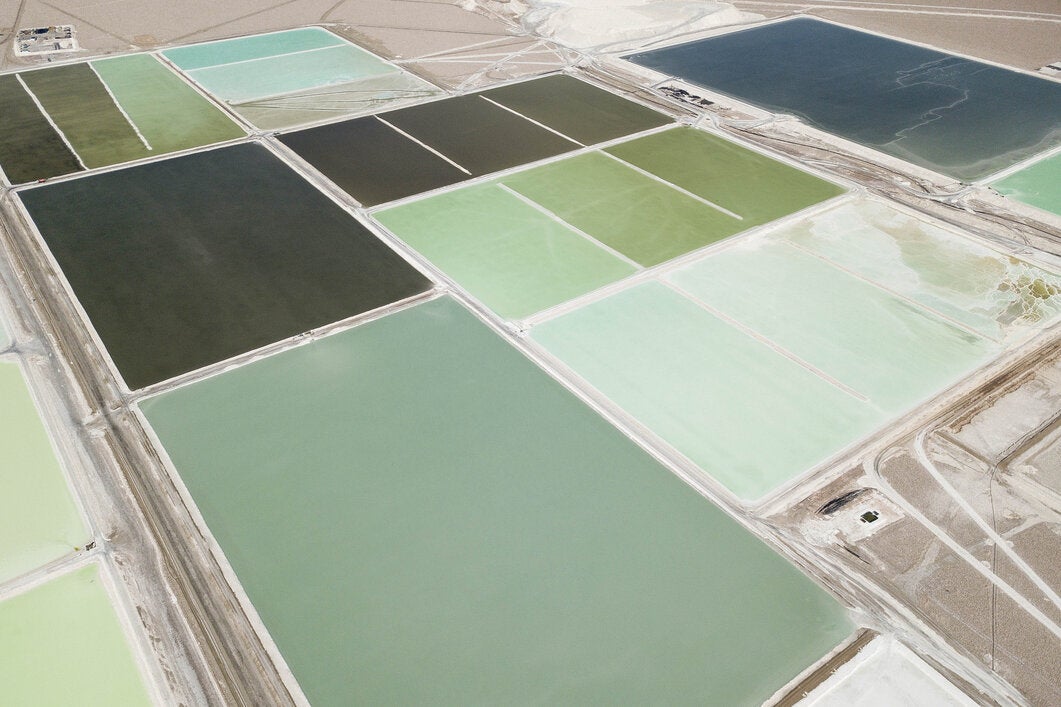
Chemicals manufacturing company Albemarle plans to expand its lithium mining operations in Chile’s Atacama salt flat as soon as 2028, using direct lithium extraction (DLE) technology, Reuters reports.
The company’s Chile manager, Ignacio Mehech, told Reuters: “Depending on environmental and other permits needed in Chile, as well as scaling technologies, we believe [DLE] should be implemented, if everything goes well, towards 2028 or 2029.”
Albemarle and SQM are currently the only two lithium producers in the South American country. Both companies extract the metal, which is crucial to electric vehicle battery production, using mass evaporation ponds filled with brine extracted from underground reservoirs. This traditional process has been criticised for its intensive water use and chemical pollution.
Chile’s President Gabriel Boric has heavily pushed for the country’s lithium mining industry to make use of DLE, despite an absence of commercial success. DLE technology removes the requirement for brine evaporation ponds and has been hailed by minerals companies as an environmentally-friendly solution to traditional extraction methods because it reduces harmful waste residue by allowing the brine to be reinjected back into the ground.
Mehech said that Albemarle has secured environmental permits for a reinjection pilot programme, slated to begin at the end of the year. “With the results we generate from that pilot program, we’re going to start a second bigger pilot campaign to have more certainty about how reinjection should be done in the Atacama salt flat.”
The move would allow the company to increase its lithium production under its current agreement with Chile’s state development agency, Corfo. It has a contract with the agency to continue lithium production until 2043.
“Suffering a slow violence”
Chile holds the largest lithium reserves in the world, but has lost its spot at top producer of the metal. Las month, Boric announced plans to nationalise the country’s lithium sector through state-controlled and public-private partnerships. Investors have begun shifting their interest to Argentina, with Paul Graves, CEO of lithium producer Livent saying: “If you want high-quality, low-cost lithium, Argentina is the country with the best assets out there.”
Indeed, limited quantifiable research has been conducted on DLE technology so far, with some studies suggesting that the process could ultimately consume more water and energy than traditional techniques. Chile’s far south is currently experiencing severe droughts, and the water needed by mining companies is a contentious topic. Indigenous communities in the Atacama region continue to suffer from water shortages caused by lithium mining operations.
“Communities are suffering a slow violence that’s creating conditions of ecological exhaustion,” James J.A. Blair, assistant professor at California State Polytechnic University, said to the Natural Resources Defense Council.
Elena Rivera Cardoso, president of the Indigenous Colla community in northern Chile said: “We used to have a river before that now doesn’t exist. There isn’t a drop of water.”
“And not only here in Copiapó but in all of Chile, there are rivers and lakes that have disappeared, all because a company has a lot more right to water than we do as human beings or citizens of Chile,” she added.
Mehech said that Albemarle has signed a deal with CRAMSA, a local company looking to build a desalination plant in northern Chile, as well as infrastructure to bring desalinated water to the region. “We need to get water from other sources,” he said. “If more partners sign on, because our demand isn’t enough, we could secure desalinated water for the Atacama basin.”



